The Imitation Game (2014)
Director: Morten Tyldum
Entertainment grade: C+
History grade: Fail
Mathematician Alan Turing played a key role in the allied victory in the second world war, by cracking the encoded messages produced by German Enigma machines.
Childhood
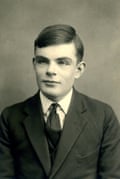
The Imitation Game jumps around three time periods – Turing’s schooldays in 1928, his cryptographic work at Bletchley Park from 1939-45, and his arrest for gross indecency in Manchester in 1952. It isn’t accurate about any of them, but the least wrong bits are the 1928 ones. Young Turing (played strikingly well by Alex Lawther) is a lonely, awkward boy, whose only friend is a kid called Christopher Morcom. Turing nurtures a youthful passion for Morcom, and is about to declare his love when Morcom mysteriously fails to return after a holiday. Turing is summoned into the headmaster’s office, and is told coldly that the object of his affection has died of bovine tuberculosis. The film is right that this awful event had a formative impact on Turing’s life. In reality, though, Turing had been warned before his friend died that he should prepare for the worst. The housemaster’s speech (to all the boys, not just him) announcing Morcom’s death was kind and comforting.
Romance
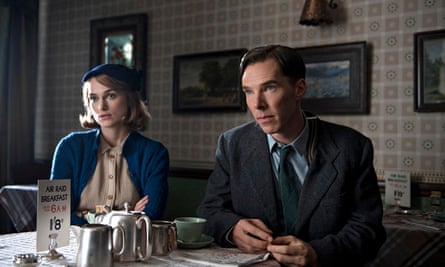
In the 1939-45 strand of the story, Turing has grown up physically – though not, the film implies, emotionally. He is played by Benedict Cumberbatch, who is always good and puts in a strong performance despite the clunkiness of the screenplay. The film gives him a quasi-romantic foil in cryptanalyst Joan Clarke (Keira Knightley), dubiously fictionalised as the key emotional figure of Turing’s adult life. The real Turing was engaged to her for a while, but he told her upfront that he had homosexual tendencies. According to him, she was “unfazed” by this.
Technology
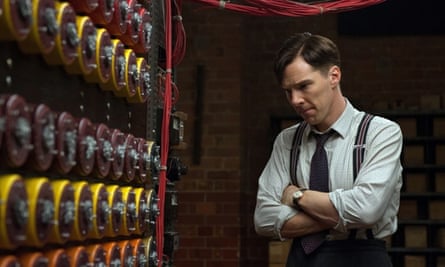
Turing builds an Enigma-code-cracking machine, which he calls Christopher. It’s understandable that films about complicated science usually simplify the facts. This one has sentimentalised them, too: fusing A Beautiful Mind with Frankenstein to portray Turing as the ultimate misunderstood boffin, and the Christopher machine as his beloved creation. In real life, the machine that cracked Enigma was called the Bombe, and the first operating version of it was named Victory. The digital computer Turing invented was known as the Universal Turing Machine. Colossus, the first programmable digital electronic computer, was built at Bletchley Park by engineer Tommy Flowers, incorporating Turing’s ideas.
Espionage
The Imitation Game puts John Cairncross, a Soviet spy and possible “Fifth Man” of the Cambridge spy ring, on Turing’s cryptography team. Cairncross was at Bletchley Park, but he was in a different unit from Turing. As Turing’s biographer Andrew Hodges, on whose book this film is based, has said, it is “ludicrous” to imagine that two people working separately at Bletchley would even have met. Security was far too tight to allow it. In his own autobiography, Cairncross wrote: “The rigid separation of the different units made contact with other staff members almost impossible, so I never got to know anyone apart from my direct operational colleagues.” In the film, Turing works out that Cairncross is a spy; but Cairncross threatens to expose his sexuality. “If you tell him my secret, I’ll tell him yours,” he says.
The blackmail works. Turing covers up for the spy, for a while at least. This is wholly imaginary and deeply offensive – for concealing a spy would have been an extremely serious matter. Were the makers of The Imitation Game intending to accuse Alan Turing, one of Britain’s greatest war heroes, of cowardice and treason? Creative licence is one thing, but slandering a great man’s reputation – while buying into the nasty 1950s prejudice that gay men automatically constituted a security risk – is quite another.
Sexuality
The final section of the film, set in 1951, may be the silliest, and not only because the film might have bothered to check that Turing’s arrest actually happened in 1952. Nor only because a key plot point rests on the fictional Detective Nock (Rory Kinnear) using Tipp-Ex, which didn’t exist until 1959 (similar products were marketed from 1956, but that’s still not early enough for anyone to be using it in the film). Nock pursues Turing because he suspects him of being another Soviet spy, and accidentally uncovers his homosexuality in the process. This is not how it happened, and the whole film should really get over its irrelevant obsession with Soviet spies. In real life, Turing himself reported a petty theft to the police – but changed details of his story to cover up the relationship he was having with the possible culprit, Arnold Murray. The police did not suspect him of espionage. They pursued him with regard to the homophobic law of gross indecency. He submitted a five-page statement admitting to his affair with Murray – evidence which helped convict him.
Justice
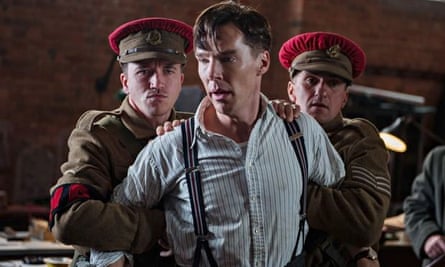
The film is right that the “chemical castration” Turing underwent after his conviction was unjust and disgusting. Turing was pardoned in 2013, but the pardon was controversial. Many campaigners believe, as Turing himself did, that consensual sex between men should never have constituted an offence at all. Tens of thousands of less famous men were similarly prosecuted between 1885 and 1967, and their convictions stand.
Verdict
Historically, The Imitation Game is as much of a garbled mess as a heap of unbroken code. For its appalling suggestion that Alan Turing might have covered up for a Soviet spy, it must be sent straight to the bottom of the class.
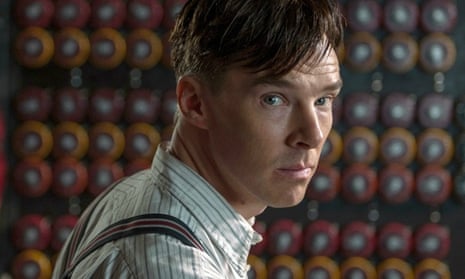
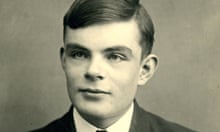
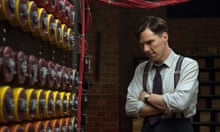
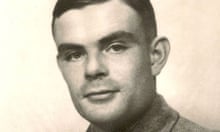
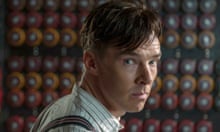
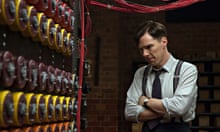





Comments (…)
Sign in or create your Guardian account to join the discussion